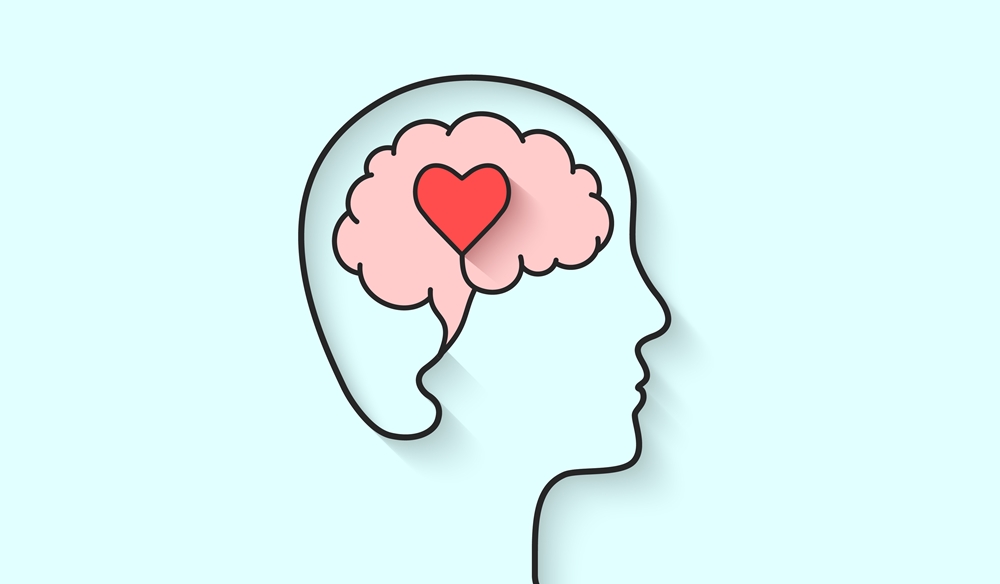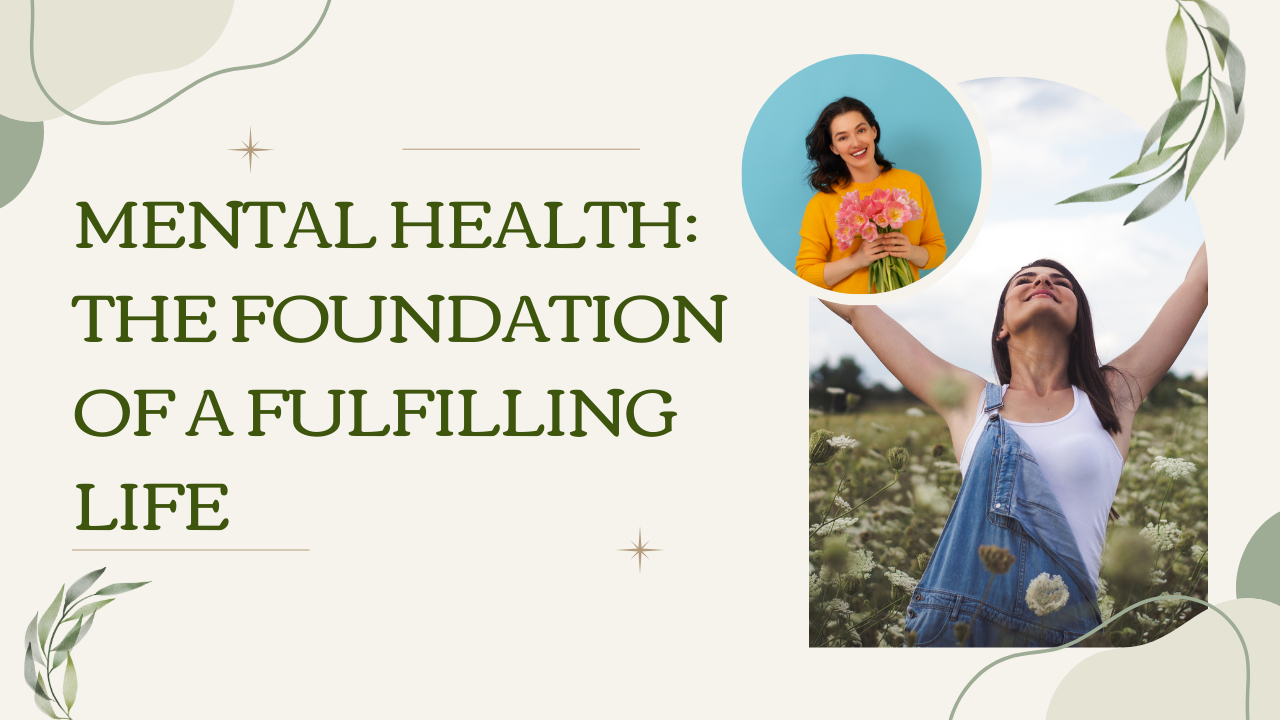Mental health is about our emotional, psychological, and social well-being. It plays a big role in how we think, feel, and act each day. Our mental health also shapes how we deal with stress, how we relate to other people, and how we make decisions. When our mental health is strong, it helps us enjoy life and face challenges with confidence.
Many times, mental health does not get the same attention as physical health. People may overlook their mental struggles or feel embarrassed to talk about them. However, mental health is just as important as physical health. Ignoring mental well-being can lead to bigger problems over time, affecting every part of life, including work, relationships, and personal happiness.
Taking care of mental health means being aware of our feelings, seeking help when needed, and making time for activities that bring peace and joy. Just like we exercise and eat healthy for our bodies, our minds also need regular care and support.

The Impact of Mental Health on Lifestyle
Mental health impacts almost every part of our lives, including daily activities, relationships, work performance, and physical health. When mental health struggles arise, it can become harder to manage emotions, connect with others, and maintain physical care. Good mental health is key to handling life’s challenges and staying balanced both emotionally and physically.
- Emotional and Psychological Well-being
Mental health strongly affects how a person feels and handles emotions. Someone with poor mental health may struggle with anxiety, depression, and ongoing feelings of sadness, anger, or irritability. These emotional struggles can hurt relationships with family, friends, and coworkers, creating distance and misunderstandings. In contrast, when mental health is strong, it promotes a more positive outlook, emotional stability, and better coping skills during hard times.
- Productivity and Performance
Good mental health is important for clear thinking and good decision-making. Poor mental health can lead to constant tiredness, trouble focusing, and delays in completing tasks. This makes it harder to succeed at work, school, or personal projects. However, when mental well-being is strong, individuals tend to show greater energy, better concentration, more creativity, and stronger motivation to meet their goals.
- Physical Health and Self-Care
Mental health has a close connection with physical health. Ongoing stress, sadness, and negative emotions can weaken the body’s immune system, causing higher risks of heart disease, weight gain, sleep problems, and other illnesses. Taking care of mental health through relaxation, positive thinking, and stress management can strengthen physical health. It also encourages healthier habits like eating nutritious foods, exercising, and getting enough rest.
- Social Connections
Mental health deeply influences how we form and maintain relationships. People dealing with mental health struggles may feel disconnected, lonely, or find it hard to trust and open up to others. This can create feelings of isolation and sadness. On the other hand, good mental health supports better communication, empathy, and emotional closeness, helping to build strong and supportive social bonds.
The Importance of Caring for Your Mental Health
Mental health, like physical health, needs regular and active care. In today’s busy world, it is easy to ignore mental well-being while focusing on daily responsibilities. However, taking time for self-care, reaching out for help when needed, and making thoughtful choices to support mental health can make a big difference. These actions can lead to better emotional balance, clearer thinking, and stronger social connections. Prioritizing mental health helps us handle life’s challenges with more strength, patience, and confidence.
10 Morning Habits That Boost Mental Health

Creating a healthy morning routine is a simple but powerful way to boost your mental health. How you begin your day can shape your mood, thoughts, and actions for the entire day. A calm and positive start can help you feel more focused, relaxed, and motivated. Here are 10 morning habits you can practice each day to support and strengthen your mental well-being:
Wake Up Early to Create a Calm Start
A Peaceful Beginning
Waking up early gives you a calm and peaceful start before the busy parts of the day begin. It allows time to prepare without feeling rushed, helping you stay more organized and focused. Early risers often feel more in control of their time, which can lower stress and reduce feelings of anxiety throughout the day.
Benefits:
Allows more time for self-care and reflection
Waking up early gives you extra time to focus on yourself. You can enjoy activities like reading, journaling, stretching, or simply planning your day, helping you feel more centered and prepared.
Promotes a sense of calmness and mental clarity
Starting the day without rushing creates a peaceful atmosphere. This calm beginning helps clear your mind, making it easier to focus, think clearly, and handle tasks with less pressure.
Reduces anxiety by avoiding a rushed morning
When you have enough time in the morning, you don’t have to hurry through important tasks. This slower pace lowers feelings of panic and stress, helping you stay relaxed and positive throughout the day.
Hydrate to Replenish Your Body
Rehydration for Better Mental Clarity
After a night of sleep, your body becomes dehydrated, which can make you feel tired, irritable, and unfocused. Drinking a glass of water right after waking up helps to rehydrate your body and jumpstart your metabolism. This simple habit can boost your energy, improve your mood, and sharpen your focus for a better start to the day.
Benefits:
Boosts brain function and supports better cognitive abilities
Staying hydrated helps your brain work at its best. It can improve memory, thinking skills, and overall mental performance, making it easier to handle tasks and challenges throughout the day.
Helps regulate mood and maintain steady energy levels
Drinking water first thing in the morning can help balance your mood and keep your energy stable. Proper hydration prevents feelings of tiredness, irritability, and emotional ups and downs.
Improves focus and enhances mental clarity
Starting the day with enough water helps you concentrate better and think more clearly. Good hydration refreshes the mind, making it easier to stay sharp, organized, and productive.
Practice Deep Breathing or Meditation

Mindfulness to Start Your Day with Calm
Adding mindfulness practices like deep breathing, meditation, or guided visualization to your morning can help lower anxiety, improve focus, and create a positive start to your day. These practices activate the parasympathetic nervous system, which helps calm the body, reduce stress, and promote a stronger sense of peace, balance, and overall well-being throughout the day.
Benefits:
Reduces stress and anxiety
Mindfulness practices help calm the mind and relax the body, lowering stress levels and reducing feelings of anxiety. By focusing on the present moment, you can prevent overwhelming thoughts and feel more at ease.
Enhances focus and mental clarity
These practices improve concentration by clearing away mental distractions. With regular mindfulness, you can boost your ability to stay focused, think clearly, and make better decisions throughout the day.
Improves emotional resilience and overall well-being
Mindfulness helps build emotional strength, allowing you to better handle life’s challenges. By promoting self-awareness and emotional balance, it encourages a sense of well-being and inner peace, making it easier to cope with difficult situations.
Engage in Physical Activity (Exercise)
Movement for a Mood Boost
Even a short 10–15 minute workout in the morning releases endorphins, the brain’s natural mood-boosters. Regular exercise not only improves physical health but also enhances mental well-being. It promotes feelings of happiness, reduces anxiety, and helps alleviate symptoms of depression, setting a positive tone for the day and supporting emotional resilience and balance.
Benefits:
Improves mood and reduces symptoms of anxiety and depression
Exercise helps elevate mood by releasing endorphins, the brain’s natural “feel-good” chemicals. This can significantly reduce feelings of anxiety and depression, leading to a more positive outlook and better emotional balance.
Increases energy and overall vitality
Regular physical activity boosts circulation and enhances oxygen flow, which increases energy levels and promotes a greater sense of vitality. It helps fight fatigue, making you feel more alert and ready to take on the day.
Enhances cognitive function and focus
Exercise stimulates the brain, improving mental clarity, memory, and overall cognitive function. It also helps sharpen focus, making it easier to stay productive and concentrate on tasks throughout the day.
Eat a Healthy Breakfast

Fueling Your Mind and Body
A nutritious breakfast with protein, fiber, and healthy fats helps stabilize blood sugar levels and provides sustained energy. This balanced meal not only supports physical health but also boosts brain function and emotional well-being. By fueling your body properly in the morning, you can maintain focus, regulate mood, and stay energized throughout the day.
Benefits:
Stabilizes blood sugar and maintains energy levels
Eating a balanced breakfast helps keep blood sugar levels steady, preventing energy crashes and maintaining consistent energy throughout the day. This ensures you stay energized and focused without feeling fatigued or sluggish.
Improves cognitive function and focus
A nutritious breakfast supports brain health, enhancing cognitive abilities such as memory, problem-solving, and concentration. It boosts focus, making it easier to stay alert and productive during tasks or activities.
Enhances mood and emotional balance
Consuming the right mix of nutrients in the morning helps regulate mood by providing stable energy and improving mental clarity. This can promote emotional well-being, making it easier to manage stress and stay calm throughout the day.
Set Positive Intentions or Goals for the Day
Starting Your Day with Purpose
Taking a few minutes to reflect on your intentions or set goals for the day can give you a clear sense of direction and purpose. This practice helps reduce feelings of overwhelm and anxiety by providing mental clarity, making it easier to approach the day with focus and confidence, rather than feeling scattered or stressed.
Benefits:
Reduces stress by creating a sense of control
Setting intentions or goals helps you feel more in control of your day, reducing uncertainty and stress. By having a clear plan, you can approach tasks with confidence, knowing exactly what to focus on, which helps minimize feelings of overwhelm.
Enhances motivation and productivity
When you reflect on your goals, it boosts motivation and helps you stay on track. This increased drive leads to higher productivity as you’re more focused on achieving your objectives throughout the day.
Fosters a sense of accomplishment and satisfaction
Achieving your goals, even small ones, gives you a sense of progress and accomplishment. This builds satisfaction and positive feelings, creating a rewarding cycle that encourages further success and well-being.
Practice Gratitude
Fostering a Positive Mindset
Beginning your day with gratitude helps shift your focus away from stress or any feelings of lack, guiding your attention toward the positive and abundant aspects of your life. Taking time to reflect on what you’re thankful for not only lifts your mood but also reduces stress and enhances emotional resilience, making it easier to handle challenges with a positive mindset throughout the day.
Benefits:
Increases feelings of happiness and satisfaction
Practicing gratitude helps cultivate positive emotions, leading to greater feelings of happiness. Reflecting on the good things in your life enhances satisfaction and strengthens your overall sense of well-being.
Reduces stress and anxiety
Focusing on what you’re grateful for helps shift your mind away from worries and stress, creating a calming effect. This practice reduces anxiety by promoting a sense of peace and appreciation in the present moment.
Promotes a positive outlook on life
Gratitude encourages a mindset focused on the positive aspects of life, making it easier to see opportunities and blessings. This shift in perspective leads to a more optimistic outlook, even in difficult situations, fostering emotional resilience and well-being.
Limit Digital Distractions

Protecting Your Mental Space
Avoiding the temptation to check your phone, emails, or social media as soon as you wake up can have a positive impact on your morning routine. Digital content often bombards you with overwhelming information, distractions, or even anxiety-inducing messages. By taking a break from screens in the morning, you give yourself the space to center your thoughts, stay present, and focus on what truly matters to you, starting your day with clarity and calmness.
Benefits:
Reduces feelings of stress and information overload
Starting your day without immediately diving into digital content allows you to avoid the overwhelming flood of information. This helps reduce stress by preventing you from feeling rushed or mentally overloaded right at the start of the day.
Promotes mental clarity and focus
By not being distracted by emails, social media, or news updates, you give your mind time to clear, allowing you to think more clearly. This creates a calm mental state, helping you focus on your priorities and tasks with greater ease.
Helps maintain a calm and centered mindset
Taking a digital break in the morning helps maintain a peaceful and balanced mindset. Without the constant input from your devices, you can start your day feeling grounded, leading to a sense of inner calm that carries through your day.
Get Exposure to Natural Light
Harnessing the Benefits of Sunlight
Getting sunlight exposure early in the day helps regulate your circadian rhythm, affecting your sleep-wake cycle, mood, and energy. Spending just 10–15 minutes outside in the morning sunlight boosts serotonin levels, improving your mood and making you feel more awake and alert. This simple habit can have a positive impact on your overall well-being throughout the day.
Benefits:
Boosts mood and promotes a positive outlook
Morning sunlight exposure helps increase serotonin levels in the brain, which improves mood and promotes a sense of well-being. This natural boost can make you feel happier and more positive as you begin your day.
Regulates sleep and circadian rhythms
Sunlight plays a key role in regulating your body’s internal clock. Exposure to natural light in the morning helps sync your circadian rhythm, which improves your sleep-wake cycle and ensures better, more restful sleep at night.
Enhances focus and cognitive function
Early sunlight exposure stimulates brain activity, leading to improved focus and mental clarity. It can enhance cognitive functions like memory, concentration, and problem-solving, helping you stay sharp and productive throughout the day.
Spend Time in Quiet Reflection
Mental Peace Before the Hustle
Spending a few quiet moments before your day starts can help clear your mind and reduce stress. Whether it’s journaling, reading, or simply sitting in silence, this practice provides an opportunity to reflect and focus on what matters most. By dedicating this time to yourself, you can set a positive tone for the day, cultivate a sense of calm, and start your day with a clear, focused mind, ready to handle challenges with greater ease and clarity.
Benefits:
Reduces stress and promotes mental clarity
Taking quiet time in the morning allows you to step away from distractions, helping reduce stress. This calm moment gives you the space to clear your thoughts, leading to improved mental clarity and a more focused mindset for the day ahead.
Enhances emotional stability and mindfulness
Starting your day with a peaceful practice helps cultivate emotional balance. It promotes mindfulness, allowing you to become more aware of your emotions and reactions, leading to better emotional control and stability throughout the day.
Provides a sense of peace and control
Taking time for yourself in the morning helps you feel grounded and in control of your day. It creates a sense of inner peace, allowing you to approach tasks and challenges with a calm, balanced perspective.
Conclusion
Your mental health plays a crucial role in determining the overall quality of your life. Starting your day with positive habits can help set the tone for the rest of your day. By incorporating just a few morning practices, such as mindfulness or a healthy breakfast, you can foster a more positive mindset and reduce stress.
These small but meaningful changes in your morning routine can have a significant impact on both your emotional and cognitive well-being. Regularly practicing these habits will not only improve your mood but also enhance your focus, clarity, and overall mental health.
Consistency is key. Making these habits a part of your daily routine can create lasting benefits over time. As you continue, you’ll notice improvements in how you feel, how you handle stress, and how productive and fulfilled you are throughout the day.
FAQs
- How does mental health impact my daily life ?
Answer: Mental health affects almost every aspect of daily life, including your emotions, thoughts, behavior, relationships, and overall functioning. Poor mental health can lead to challenges in concentrating, handling stress, maintaining relationships, and even performing tasks at work or school. It can also affect your physical health, as stress and negative emotions can weaken the immune system, increase inflammation, and contribute to chronic health issues. - Can simple morning habits really improve my mental health ?
Answer: Yes! Small, consistent changes in your morning routine can have a significant impact on mental health. Practices such as hydration, exercise, mindfulness, and gratitude have been scientifically proven to reduce stress, improve mood, and enhance focus and productivity. Starting the day with positive habits helps set a tone of calmness and intention, which can carry over into the rest of your day. - How much time do I need to dedicate to morning habits for them to be effective ?
Answer: You don’t need to spend hours on morning habits for them to be effective. Even dedicating just 15–30 minutes in the morning to practices like hydration, stretching, meditation, or goal-setting can provide noticeable benefits. The key is consistency. When you incorporate these habits daily, they add up over time and contribute to lasting improvements in your mental health. - Can I see immediate results from practicing these morning habits ?
Answer: While some benefits, like feeling more awake and focused after hydration or exercise, may be felt immediately, long-term mental health improvements typically require consistent practice over weeks or months. It’s important to be patient and not expect instant changes. Over time, however, you’ll likely notice reduced stress, improved mood, increased productivity, and better emotional resilience. - What if I’m not a “morning person”? Can these habits still work for me ?
Answer: Absolutely! You don’t have to be an early riser to benefit from these habits. The key is finding a routine that works for your natural rhythms. If you’re not a “morning person,” you can start by gradually waking up a little earlier or simply implement these habits at a time that fits your schedule. Even a few minutes of mindfulness or gratitude in the morning can have a positive impact, regardless of what time you wake up.


